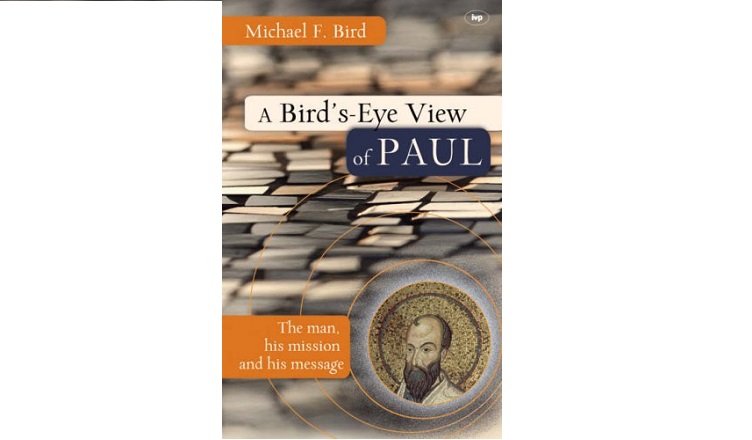“This book is meant as an introduction to the apostle Paul for laypersons and undergraduate students and as a refresher for pastors and ministers. My objective is to get people excited about reading Paul’s letters, preaching Paul’s gospel and living the Christian life the way Paul thought it should be lived. My aim is to go deeper into Paul but without losing people in the mire of scholarly debates and complex technicalities. I want to show that what Paul has to say to the church today is both relevant and riveting.” (p6)
- Link: Amazon
- Length: 171
- Difficulty: Academic, Easy, Popular
- Topic: Theology, Paul
- Audience: Mainstream Christians
Sadly I could not find the book on logos.com or a kindle version. So I bought a hard copy. 🙁 I bought the book because I was interested in finding out what he believes is the gospel. But got much more.
I found the book as he says. It’s a relatively easy read for an academic book. Obviously it’s not hugely long and it does cover a lot of key concepts in Paul being discussed today.
Contents – Overview
- What is Paul?
- A funny thing happened on the road to Damascus
- The stories behind the story
- Reading someone else’s mail
- The royal announcement
- The crux of the gospel
- The return of the King
- One God, one Lord: monotheism and the Messiah
- Living a life worthy of the gospel: the ethics of Paul
- Gospelizing 101: Paul’s spirituality
- Epilogue
Main points
What is Paul? Or show we ask ‘who is Paul?’ Mike answers Paul is presented in the New Testament as persecutor, missionary, theologian, pastor, martyr and lastly maverick. He writes about each of these different hats.
A funny thing happened on the road to Damascus. Mike gives a brief chronology of Paul’s life. He discusses the massive change in Paul’s life when he met the risen Jesus. Formerly a persecutor, afterward a preacher.
The stories behind the story. He sees in Paul an number of different stories lurking underneath the text. God and creation. Adam and Christ. Abraham. and the covenant. Israel, Jesus and the Church.
Reading someone else’s mail. Paul’s letters were written for us, but not to us. Mike believes it is important to have an overview understanding of each of Paul’s letters. He gives them.
- Galatians: Contending for the truth of the gospel,
- Thessalonians: An ending worth waiting for,
- Corinthians: The good, the bad and the Corinthians,
- Philippians: Surprised by joy, fazed by finances,
- Colossians: The sufficiency and the supremacy of Christ,
- Ephesians: The majesty and mystery of Christ,
- Romans: Pursuing things that make for peace, and
- Pastorals: Faithful sayings for faithful friends.
The royal announcement. Mike starts of explaining what I recognise to be a popular understanding of the gospel as deficient. He then goes on to explain the gospel is a story. This puts him in the same circle of thought as NT Wright, John Dickson and Scot McKnight. He discusses the usual suspects: 1 Cor 15.1-5; Rom 1.1-4 and 2 Tim 2.8. Like the others he also refers to the relationship between the gospel and Caesar (cf. Acts 17.7).
The crux of the gospel. Mike says, ‘the cross and the resurrection of Jesus dominate Paul’s gospel proclamation and also comprise of the centre of his theological thought.’ (p92) He then discusses much debated concepts including the righteousness of God (creation, covenant, forensic), justification, imputation, union with Christ, Christ’s obedience and faithfulness. He gives overview of Paul’s soteriology regarding sacrifice and atonement, reconciliation, redemption, adoption and victory.
The return of the King. Mike introduces us to the topic of eschatology. ‘Eschatology is the study of the last things or the age to come. Fundamental to Paul’s theology is that the future age (the eschaton) has already broken in and has been inaugurated through the life, death and the resurrection of the Son of God.’ (p114) He writes about the fate of Israel, the parousia (return of Christ) and how these apply to the believer personally.
One God, one Lord: monotheism and the Messiah. Mike walks us through several passages in the Corinthian letters, Colossians, Philippians, Galatians and Romans which describe the relationship Jesus, the Christ, the Son of God has with God. He argues for a trinitarian understanding showing from the scriptures how Paul communicated this.
Living a life worthy of the gospel: the ethics of Paul. Mike walks us through concepts such as the indicative-imperative content of Paul’s letters. He highlights Christians are not under the law of Moses, rather of grace and gives an explanation why Romans 7 cannot apply to Paul as a believer. He then outlines some basic principles that direct the ethics of Christians. He will outline what Paul says about sex and homosexuality.
Gospelizing 101: Paul’s spirituality. A short chapter. Mike explains how the gospel (particularly) the death and resurrection of Christ, should direct the life of Christians. He explains this under two headings, cruciformity and anastasisity.
Epilogue. Mike finishes off repeating the aims of the book. He speaks briefly about the legacy of Paul, the authority of his letters, and finishes with a quote from the Book of Common Prayer which refers to Paul’s preaching of the gospel.
Recommendation
As a whole I’m on the same page with Mike theologically. He is a well researched, balanced theologian who holds to the authority of scripture and would like to see it read and interpreted well for the benefit of the church.
I’d recommend this book to anyone who wants an entry level introduction into the main topic of Paul’s thought and what is being spoken about today. The book has a number of contemporary references to other scholars. So it is a useful reference for further reading.
Copyright © Joshua Washington and thescripturesays, 2015. All Rights Reserved.





